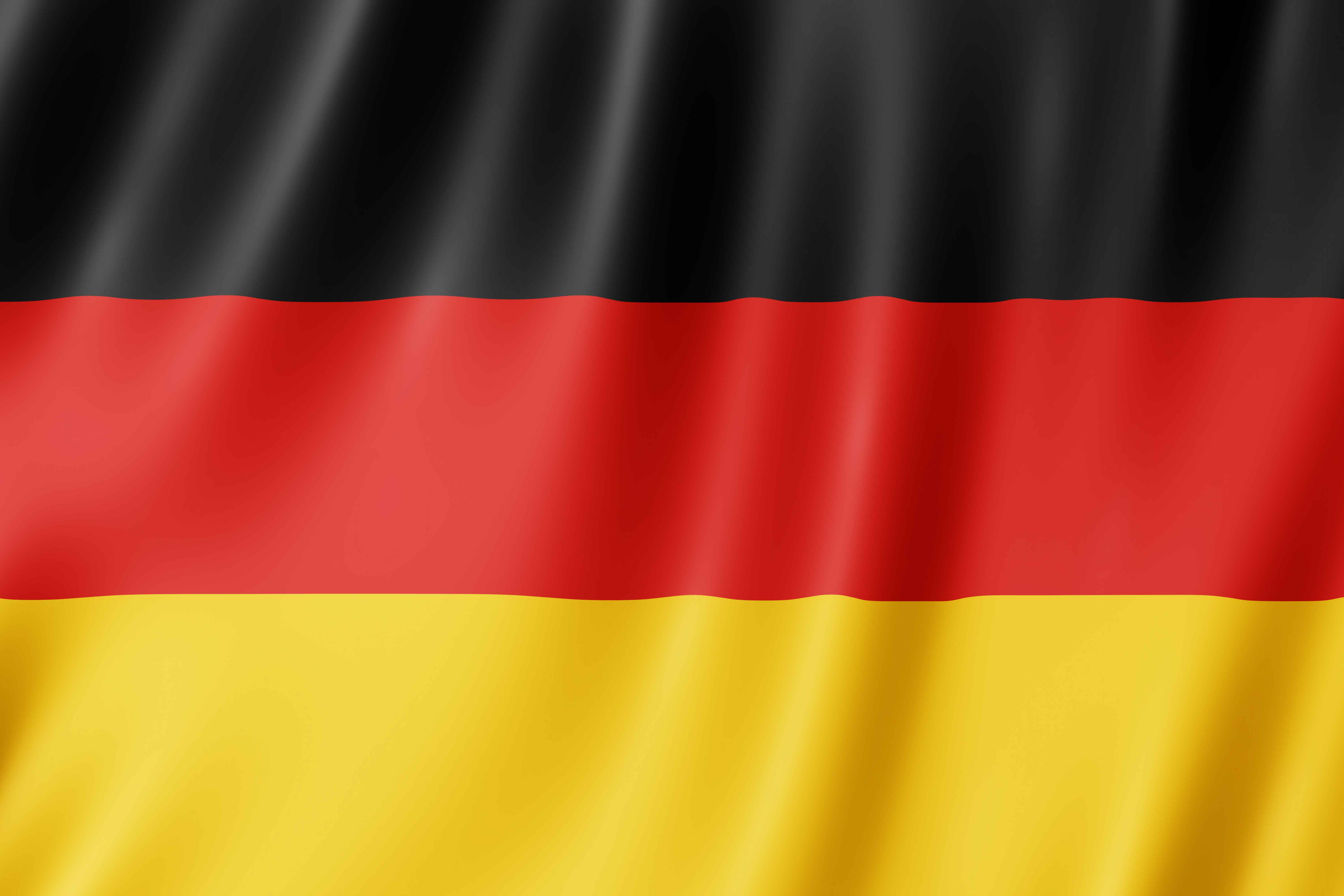Introduction
Germany's economy stands as the largest in Europe and a significant global player, characterized by its "social market economy" that balances free market principles with social responsibility. Its strength lies in a robust manufacturing sector, particularly in automotive, machinery, and chemicals, driving its export-oriented nature. While manufacturing is a cornerstone, the service sector also contributes substantially to the GDP. A highly skilled workforce underpins its industrial and technological advancements. However, Germany faces challenges including an aging population, the imperative for digitalization, and the transition to sustainable energy, alongside navigating evolving global trade dynamics. This blend of industrial might, social commitment, and global engagement defines the German economic landscape.
Key payment methods in Germany
Traditional Methods:
- Cash (Bargeld):
- Still very popular, especially for smaller transactions and in local shops.
- Germans have a strong preference for cash and prioritize privacy in transactions.
- Girocard (formerly EC-Karte):
- The most common debit card system in Germany.
- Widely accepted in physical stores.
- Plays a very large role in in person transactions.
- Bank Transfers (Überweisung):
- Frequently used for paying bills, rent, and other recurring expenses.
- Reliable and secure.
- Direct Debit (Lastschrift):
- Common for recurring payments like utilities, subscriptions, and insurance.
- SEPA Direct Debit system provides consumer protection.
Digital and Online Methods:
- PayPal:
- Dominant online payment method.
- Widely used for e-commerce transactions.
- Offers buyer protection.
- Mobile Wallets (Apple Pay, Google Pay):
- Increasingly popular for contactless payments.
- Convenient and secure.
- Purchase on Account (Kauf auf Rechnung):
- Popular for online shopping, allowing customers to pay after receiving the goods.
- Builds trust between buyer and seller.
- SOFORT/Klarna:
- These services facilitate instant bank transfers for online purchases.
- Klarna also provides "buy now, pay later" options.
- SEPA Transfers:
- Essential for euro transactions within the Single Euro Payments Area.
Best Digital Payment Solutions in Germany
Dominant Digital Payment Solutions:
- PayPal:
- Remains a powerhouse in Germany's online payment landscape.
- Widely trusted and used for e-commerce transactions.
- Offers strong buyer protection, which is highly valued by German consumers.
- Mobile Wallets (Apple Pay, Google Pay):
- Gaining significant traction, particularly for contactless payments at physical stores.
- Offer convenience and security, aligning with the growing preference for digital transactions.
- Klarna:
- Popular for "buy now, pay later" options, catering to consumers seeking flexible payment solutions.
- Also facilitates instant bank transfers.
- TransFi:
- A robust payment gateway that enables businesses to accept a wide range of online payments.
- Provides reliable and secure payment processing.
- Adyen:
- Another strong payment gateway, used by many businesses to accept payments from customers across the globe.
- Girocard:
- While technically a debit card system, the underlying infrastructure is now being used more and more in digital payment solutions.
Things to consider while making payments in Germany
- Security:
- German consumers place a high premium on secure payment processing.
- Solutions with robust fraud prevention measures are essential.
- Convenience:
- Seamless and user-friendly payment experiences are crucial for driving adoption.
- Local Preferences:
- Understanding and catering to the German preference for data privacy is vital.
- E-commerce integration:
- For online businesses, having payment gateways that easily integrate into e-commerce platforms like shopify, and woocommerce is very important.
Best Online Payment gateways for businesses in Germany
Key Payment Gateways:
- TransFi:
- A very popular choice globally, TransFi offers comprehensive payment processing capabilities.
- It supports a wide range of 250+ payment methods, including credit and debit cards, SEPA Direct Debit, and popular digital wallets.
- Stripe is known for its developer-friendly APIs and seamless integration with e-commerce platforms.
- It is a very good choice for online businesses that want to grow internationally.
- Adyen:
- Adyen is a powerful platform that provides end-to-end payment solutions.
- It supports a vast array of global and local payment methods, making it suitable for businesses with an international customer base.
- Adyen is known for its robust infrastructure and advanced features.
- PayPal:
- PayPal remains a dominant player in Germany's online payment landscape.
- It's widely trusted by German consumers and offers strong buyer protection.
- Integrating PayPal into your online store is essential for catering to local preferences.
- Klarna:
- Klarna's "buy now, pay later" options are highly popular in Germany.
- It also provides instant bank transfer solutions, offering flexibility to customers.
- Klarna is a very good option for businesses that want to increase their sales by offering flexible payment options.
- Worldline:
- Worldline provides a large range of payment processing solutions. They support a very large number of local and global payment methods.
- They also provide fraud management tools.
"Succeeding in Germany’s market requires more than just accepting payments—it’s about understanding local preferences. TransFi helps businesses integrate region-specific payment methods while ensuring compliance with European regulations, enabling seamless cross-border transactions." - Rahul Sahni, COO & CPO TransFi
How to accept digital payments in Germany
- Key Payment Methods:
- PayPal: Essential for online transactions.
- Girocard: Dominant debit card system.
- SEPA Direct Debit: Crucial for recurring payments.
- Klarna/SOFORT: Popular for online bank transfers and "buy now, pay later" options.
- Mobile Wallets (Apple Pay, Google Pay): Growing in popularity.
Emphasis on Security and Privacy: German consumers prioritize data protection.
2. Choose the Right Payment Gateway/Processor:
Consider these providers:
- TransFi : Offers a wide range of payment options and easy integration.
- Adyen: Suitable for businesses with international reach.
- PayPal: A must-have for German online customers.
- Klarna: Provides flexible payment solutions.
Key factors to evaluate:
- Supported payment methods.
- Security measures (PCI DSS compliance).
- Integration capabilities with your e-commerce platform.
- Transaction fees.
- Customer support.
3. Integrate Payment Options into Your Business:
Online Businesses:
- Integrate payment gateways into your website or online store.
- Offer a variety of payment options at checkout.
- Ensure a secure and user-friendly checkout process.
Physical Stores:
- Implement contactless payment terminals that accept Girocard and mobile wallets.
- Consider offering mobile payment options through QR codes.
4. Address Security and Compliance:
- GDPR Compliance: Adhere to strict data protection regulations.
- Fraud Prevention: Implement measures to prevent fraudulent transactions.
- Secure Payment Processing: Ensure your payment gateway/processor is PCI DSS compliant.
5. Consider Local Preferences:
- Offer "Purchase on Account" (Kauf auf Rechnung): This builds trust with German customers.
- Provide clear and transparent payment information: In German.
- Offer German speaking customer support: This is very helpful.
Some trends in adoption of cashless payments in Germany
- Cash Still King, But Less: Cash remains popular, but its use is declining.
- Girocard Growth: Debit card use (Girocard) is increasing.
- Contactless is Up: Contactless payments are becoming common.
- Mobile Wallets Gain: Apple Pay and Google Pay are rising in popularity.
- E-commerce Drives Change: Online shopping boosts digital payments.
- PayPal Remains Strong: PayPal is a key online payment method.
- BNPL is Emerging: "Buy now, pay later" services are growing.
- More Businesses Accept: Wider acceptance of cashless payments.
- Security Matters: Germans value secure transactions.
- Privacy is Key: Data privacy is a significant concern.
- Younger Demographics Lead: Younger people are more likely to use digital payments.
- Digital Wallets expanding: Digital wallets are being used for more than just payments.
- Gradual Shift: The change is happening steadily, not rapidly.
Conclusion
In conclusion, Germany's payment landscape is evolving, balancing its traditional cash preference with the growing adoption of digital methods. While security and privacy remain paramount, the convenience of contactless payments, mobile wallets, and online platforms is driving a steady shift towards a more cashless future.
Frequently Asked Questions (FAQs)
- What are some payment methods in Germany?
- Cash (Bargeld): Still very popular, especially for small purchases.
- Girocard: The most common debit card, widely accepted in stores.
- Bank Transfers (Überweisung): Used for bills, rent, and online payments.
- Direct Debit (Lastschrift): For recurring payments like utilities.
- PayPal: Dominant online payment method.
- Mobile Wallets (Apple Pay, Google Pay): Increasing in popularity for contactless payments.
- Klarna/SOFORT: For instant online bank transfers and "buy now, pay later" options.
- Purchase on Account (Kauf auf Rechnung): Popular for online shopping, paying after receiving goods.
- SEPA Transfers: For Euro transfers within the SEPA zone.
- What are some good digital payment apps?
- PayPal Reigns Online: Dominant for e-commerce.
- Mobile Wallets Grow: Apple Pay & Google Pay for contactless.
- Bank Apps Essential: For transfers and account management.
- Klarna for Flexibility: "Buy now, pay later" and instant transfers.
- Wero is new: A secure bank to bank transfer app.
- Security is Paramount: Germans prioritize safe transactions.
- Privacy Matters: GDPR compliance is crucial.
- Girocard Integration: Underpins many in-person digital payments.
- Local Banking Apps: Very widely used.
- Contactless is Up: Driven by mobile wallets.
- What are some good payment getaways for businesses in Germany?
- Stripe: Global, versatile, developer-friendly.
- Adyen: Powerful, international, robust.
- PayPal: Essential, trusted, buyer protection.
- Klarna: BNPL, instant transfers, sales boost.
- Worldline: Broad solutions, many payment types, fraud tools.
- GiroPay: Direct bank transfers, secure.
- How to accept payments in Germany?
Accepting payments in Germany necessitates a multifaceted approach, tailored to both online and physical retail environments. For online businesses, integrating PayPal is paramount due to its widespread usage, while offering Klarna's flexible payment options and employing robust gateways like Stripe or Adyen expands payment method diversity. Supporting SEPA Direct Debit for recurring transactions and "Kauf auf Rechnung" to foster trust are also crucial. Mobile optimization and secure payment processing, alongside German language options, enhance the customer experience. In physical stores, accepting Girocard, implementing contactless terminals, and supporting mobile wallets cater to modern preferences, while still accommodating cash payments. Clear pricing, receipts, and secure POS systems ensure smooth transactions. Regardless of the channel, GDPR compliance, diverse payment options, transparent information, and secure processors are fundamental for building trust and facilitating seamless transactions in the German market.
- What are some trends in adopting cashless methods in Germany?
Germany is experiencing a gradual but consistent shift towards cashless payments. While cash remains a cultural preference, its usage is steadily declining as debit card transactions, particularly through Girocard, and contactless payments gain widespread acceptance. Mobile wallets like Apple Pay and Google Pay are also on the rise, driven by their convenience and security. The booming e-commerce sector further fuels this trend, with PayPal maintaining its dominance as the preferred online payment method. Additionally, "buy now, pay later" services are becoming increasingly popular, reflecting a growing demand for flexible payment options. Although security and privacy remain paramount concerns for German consumers, the younger generation is leading the charge in adopting these digital payment methods, resulting in a slow but steady transition away from traditional cash transactions.
Table of Contents
Suggested Article
Explore our products

Make global payments at the speed of a click

Accept payments, remove borders.

Unlock Seamless Digital Currency Transactions Anywhere
























